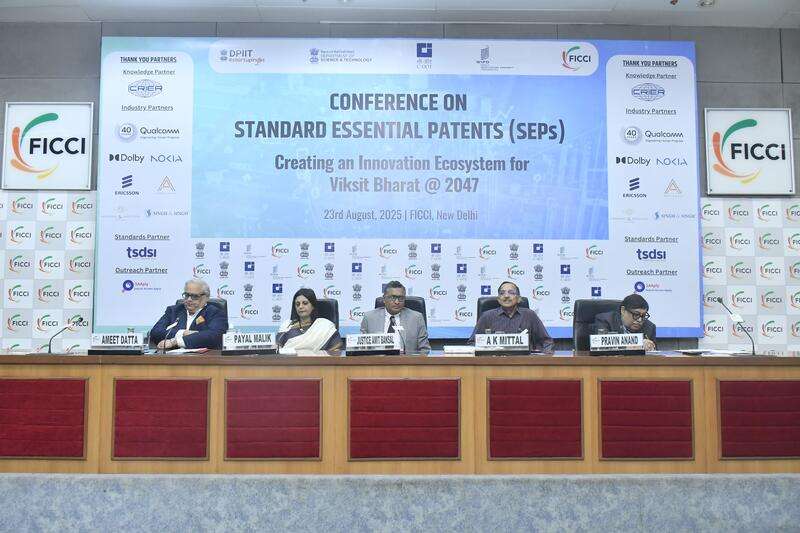
At FICCI–ICRIER conference, the Delhi High Court judge calls for a judicial–arbitral framework to fast-track patent disputes as India targets 10,000 global 6G patents.

New Delhi, August 23, 2025 –India must embrace a hybrid model of judicial and arbitral mechanisms to resolve Standard Essential Patent (SEP) disputes and accelerate commercial settlements, according to Justice Amit Bansal of the Delhi High Court.
Speaking at the Conference on Standard Essential Patents (SEPs) organised by FICCI and ICRIER, Justice Bansal proposed a framework where courts and arbitral tribunals front-load structure, streamline negotiations, and reserve full trials only for unresolved issues.
“In my view, the future of SEP litigation lies in a hybrid model. Our courts, bar and expert community have already shown the discipline and imagination to make this work,” Justice Bansal said, stressing that early determination of FRAND (fair, reasonable and non-discriminatory) royalty rates through arbitration could clear negotiation deadlocks and reduce litigation delays.
The proposal comes as India pursues its Viksit Bharat 2047 vision, with ambitions to secure 10% of global 6G patents and strengthen its role in standard-setting across telecommunications, AI, semiconductors, and IoT.
Industry experts at the conference highlighted both opportunities and challenges in India’s SEP journey:
Ameet Dutta, Co-Chair, FICCI IPR Committee & Managing Counsel, ADP Law Offices, underlined the need for Indian enterprises to transition from technology adopters to standard setters in the global IP ecosystem.
Payal Malik, Visiting Professor at ICRIER and former Advisor at CCI, cautioned that without patent-creation incentives, India risks remaining a net implementer rather than an innovator.
A.K. Mittal, DG, TSDSI, stressed the importance of strategic alliances in global forums like 3GPP, where over 850 companies shape telecom standards.
The hybrid model, Justice Bansal noted, would combine fast-tracked timelines, judicial discipline, technical expertise, and internationally enforceable awards under the New York Convention. Such a framework addresses chronic issues in SEP litigation including prolonged disputes lasting up to eight years, frequent roster changes, and India’s low judge-to-population ratio.
Pravin Anand, Member, FICCI IPR Committee & Managing Partner, Anand & Anand, added that India must also embrace legislative agility, pointing out outdated provisions in IP laws that have remained unchanged for decades.
The government has already committed ₹10,000 crore for 6G R&D and established the Anusandhan National Research Foundation with a proposed ₹100,000 crore research fund, yet experts stressed that India’s innovation drive requires stronger coordination, higher industry R&D investment, and a coherent long-term IP policy.
Justice Bansal’s proposed model seeks to balance justice in the courtroom, economics at the table, and innovation in the driver’s seat, ensuring India’s SEP ecosystem can power its aspirations for 6G leadership.
About the Conference:
The FICCI–ICRIER Conference on SEPs brought together judges, policymakers, industry leaders, and researchers to deliberate on India’s role in global standard-setting and the future of intellectual property-driven innovation.






























